Text
Hard Boiled
For today’s blog, I wanted to choose a film to watch that correlated with my last response, where I discussed the Hong Kong New Wave. In this response, I mentioned two key directors of this time, one of which being John Woo. After completing some research before determining a certain film to watch, I came across Hard Boiled, a 1992 action film directed by Woo. The film follows as an undercover cop sets out to stop a gangster and his group. While doing so, he goes to large extremes, and faces MANY near-death experiences.

What initially caught my eye about choosing this film was reading that this film was focused on undercover cops, over Hong Kong’s cinema typical concentration of mobsters and/or other characters involved in intense action. This creative choice really exemplified the times of the New Wave. Similarly, another source provided context of Woo’s choices of film making prior to this one, stating, “Following a burnout break in the 1980s, Woo teamed up with super-producer Tsui Hark to make A Better Tomorrow, a revolutionary blockbuster that set the template for the “heroic bloodshed” subgenre of ultra-stylized, gritty yet emotional Hong Kong action flicks. With a bona fide game-changer under his belt, Woo was allowed to explore his own style with relative creative freedom, notching two more classics with A Better Tomorrow II and The Killer.” (Seidel, 2023).
There is no denying that this film was action PACKED! Woo wonderfully executed stunting scenes, really making them appear to be realistic (at least for a 90’s film. Credit where it is due, people!!). This movie really demonstrated the new lines that directors were pushing, especially Woo, to produce these incredible works of art.
The following clip is the entirety of the hospital shooting scene. I found this clip to be the best one to put here due to its heightened intensity, and due to the fact that this is arguably (in my opinion) the best scene in the movie.
youtube
Though I appreciated the action, and did overall enjoy the film, I do not necessarily believe that the actual plot line itself kept me entertained. Another source similarly mentioned, “Most action movies are audacious in spurts. John Woo’s Hard Boiled (1992) is exciting because it’s almost all audacity. We watch it with disbelief; the bangs and explosions and gymnastic leaps out of a bullet’s path are presented to us with such exquisite vulgarity that we look forward to how Woo is going to shock us next. It doesn’t matter as much where the storyline is or where it’s going.” (Peterson Reviews, 2023). I certainly agree, that the action spoke for itself, regardless of what was happening with the plot itself. I would recommend this movie for anyone looking for consistent action, blood, and gore in a film.
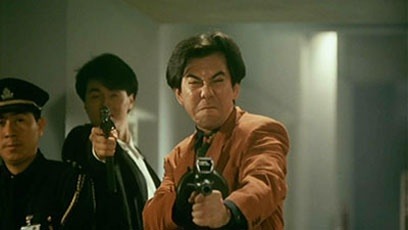
References:
“hard boiled” is John Woo at his best. Peterson Reviews. (2023, September 1). https://petersonreviews.com/2020/01/24/hard-boiled-is-john-woo-at-its-best/
Seidel, M. (2023, June 12). Life should be about fun: Hard boiled. Hyperreal Film Club. https://hyperrealfilm.club/reviews/2023/6/12/life-should-be-about-fun-hard-boiled
0 notes
Text
The Hong Kong New Wave
For today’s blog post, I wanted to switch it up, and focus on a generalized overview of an important movement within Hong Kong cinema. This particular movement I wanted to ensure did not only impact Hong Kong action films, but a plethora of others as well. The movement that I chose to focus on is the Hong Kong New Wave. This period took place in the late 1970’s and continued into the late 90’s. This new era of film was encouraged by Westernized ideas. Many notable filmmakers were now producing films and content that were competing quite well against Hollywood films. Furthermore, this new era was quite different from Chinese cinema. One of the many acclaimed directors from this time, Wong Kar-Wai, boldly stated, “This is what the difference is between Hong Kong and Chinese cinema - Chinese cinema was made for their own communities. It was for propaganda. But Hong Kong made films to entertain, and they know how to communicate with international audiences.” (Movements in Film). It is very interesting to note how different these two types of cinema are. Furthermore, it is important to recognize how much more Hong Kong cinema progressed during and leaving this era. The two videos demonstrate a little more about the history of the Hong Kong New Wave.
youtube
youtube
While researching this topic, I wanted to see what other directors that I would come across. The two that come up first, as assumed by anyone who dabbles in Hong Kong cinema, were Tsui Hark and John Woo. Both directors pushed the limits of action cinema, often pushing past any boundaries and trying new things. Specifically, Tsui was known to do this. According to other film sources, “Set in the years just before the Japanese invasion, Peking Opera Blues follows a trio of women (Brigitte Lin, Cherie Chung and Sally Yeh) who get mixed up in a scheme to steal an important something from a local warlord. With deft action and comic sequences and a shockingly progressive (certainly for Hong Kong in the ’80s) feminist approach (led by Lin’s gender-nonconforming heroine), Peking Opera Blues is as close to perfect as the popular cinema gets.” (Gilman, 2017). It is quite fascinating to think about these concepts being explored this early on, considering that a lot of films in the 80’s particularly was more conservative (traditional) with the concepts that they explored. Consequently, it is clear that the Hong Kong New Wave provided this sense of security for creative freedom.
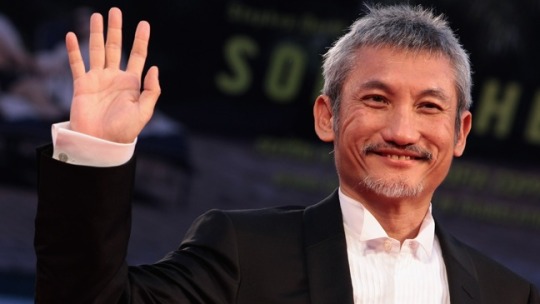
As I continued my research, I found that John Woo faced many other obstacles when navigating his work. Woo was struggling to manage his career while having depression and substance abuse issues, Tsui took him in to collaborate on projects together. Thus, creating a further emphasis of their power over this movement.
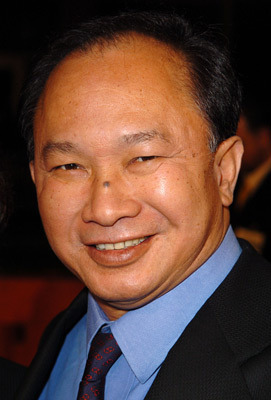
Sadly, this New Wave concluded by the late 90’s due to lack of funding, which then had a domino effect that impacted the ability of filmmakers to be able to have as much creative freedom as they had before.
References:
Gilman, S. (2017, August 12). Tsui Hark. Medium. https://medium.com/the-chinese-cinema/tsui-hark-9dda28e21609
What is the Hong Kong new wave? A beginner’s guide. Movements In Film. (n.d.). https://www.movementsinfilm.com/hong-kong-new-wave
YouTube. (2022a, February 8). What happened to Hong Kong film? | video essay and Documentry of hong kong new wave. YouTube. https://www.youtube.com/watch?v=bJ8E6O7KH4A
YouTube. (2022b, June 2). How the Hong Kong new wave changed everything. YouTube. https://www.youtube.com/watch?v=SZoTvdrT85E
0 notes
Text
Ip Man - Review
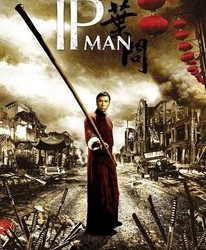
Hi everyone! For my second blog post, I wanted to find a Hong Kong action film that was highly regarded amongst viewers, and one that I had never heard of before. After some Google searches, I stumbled upon Ip Man, a film directed by Wilson Yip and written by Edmond Wong and Tai-Lee Chan. The movie, released in 2008, is a rated R action film and stars Donnie Yen as Ip Man. The character Ip Man, while based on a real person, does not exactly follow a real storyline necessarily. Ip Man is a highly regarded martial arts Master and is known for his craft. The beginning of the film follows him in his practice, and interacting with locals that are truly inspired by him. All this accreditation and more are stripped away from him once Japanese soldiers invade, starting the Second Sino-Japanese War. After losing everything, he is forced to find work to support him, his wife Cheung, and his son, and picks up a job scooping coal. While working on the job, the men are approached by some Japanese soldiers about fighting their military for training. The prize for this is a sack of rice. Overtime, Ip starts to train the factory workers for self-defense, which is later needed in the film. Ip eventually is asked to dual with the Japanese military men, and after beating them, is asked to dual Miura, where he is shot afterwards by one of the soldiers. With the help of Li and Cheung, they are able to escape to Hong Kong. The movie closes out with information about Ip and his life story in reality, and how he was able to be successful as a martial arts trainer.

As I watched this film, there was so much to take in. I felt as though Master Ip was quite fascinating in his skill. In a lot of the fights within his own home, his moves were so graceful, yet, they had so much power! I found that as a viewer, I was very stressed watching some of the scenes play out. But then again, like I have said previously, I am a romcom girl... so these feelings seem to check out!
One scene that really stood out to me was when Ip Man was up against ten other men that had been training. This was fascinating to me because it was really able to portray his abilities as someone who is well equipped with his skills. Furthermore, this seemed to almost exemplify a sudden change in his outlook of martial arts. Before, this was a source of enjoyment, and an artform that really inspired him to train day in and day out. But suddenly, this was now a method of survival, and you can see this as the camera focuses on his bloody fist, and the dark look on his face. He no longer appears to be the lighthearted and sweet man that we grow to know in this film, but rather, someone who knows that he is no longer secure with where he is. The following video demonstrates this scene:
youtube
A good majority of the reviews that I found for Ip Man were very positive! One review article addressed the choice of editing the film and how it impacted the feel for the plot. Panos Kotzathanasis writes, “Cheung Ka-fai's editing is also excellent, with him retaining an overall very fast pace, which slows down, on occasion, however, in order to allow for some moments of drama and some sociopolitical comments to emerge.” (Kotzathanasis, 2022). This note is valuable to consider, as it really did leave an impact on the drama behind certain scenes. Overall, Kotzathanasis noted that this was a “classic of HK cinema” (Kotzathanasis, 2022).
In another review, Michael Scott, a staff member for AV Nirvana, wrote an in depth review and ranked each aspect of the film according to the following categories: movie, 4k video, audio, extras, and a final score. The movie itself scored 4.5/5, and the final score was 3.5/5. In his final score remarks, Scott wrote, “Ip Man is probably THE most iconic martial arts film of the 2000s. A film that hearkens back to the 80s and 90s when Hong Kong cinema was at it’s peak, and iconicized Donnie Yen as not only a great martial artists, but making one of the greatest of the genre along with Jackie Chan, Bruce Lee and Jet Li. The film has stood the test of 14 years of time, and still is one of the most watched Blu-rays (and now 4K’s) in my collection. Absolutely amazing film, but a 4K UHD upgrade that is moderate at best. So take what minimal upgrades you want, or keep your Blu-ray, but I still highly recommend the film itself as a true modern classic.” (Scott, 2022).
Overall, I would recommend this film to anyone looking for a solid action movie. The story was equally heartbreaking as it was inspirational. I think it will be hard to top this film, especially considering it was turned into a four-part series with an additional film following some of the same characters.
Until next time! 😊
References:
Flixster. (n.d.). https://resizing.flixster.com/zl4wOpfVFa1Wpw6p72cgGo3AF7E=/206x305/v1.dDszOTE5NDM7ajsxNzk4NzsxMjAwOzkwMDsxMjAw
Kotzathanasis, P. (2022, January 22). Film review: Ip Man (2008) by Wilson Yip. Asian Movie Pulse. https://asianmoviepulse.com/2022/01/film-review-ip-man-2008-by-wilson-yip/
Movie & TV reviews for parents. (n.d.). Age-based media reviews for families. Common Sense Media. https://www.commonsensemedia.org/
Scott, M. (2024, February 23). Ip Man - 4K Blu-Ray Review. AV NIRVANA. https://www.avnirvana.com/threads/ip-man-4k-blu-ray-review.11473/
YouTube. (2019, November 6). Ip Man (2010) - ip man vs. 10 black belts scene (6/10) | movieclips. YouTube. https://www.youtube.com/watch?v=Kv9ygN2B8WU
0 notes
Text
Introductory Blog Post - Hong Kong Action Films
Hi everyone! My name is Becca, and I am a student at Bridgewater State University! This semester, I wanted to try something new and take a Global Cinema class! As a Junior that is deep within her major, I do not always get the opportunity to take new classes like this, so it has been a wonderful experience thus far. For the remainder of the semester, I will be making brief blog posts that are focused on Hong Kong action films. These blog posts will lead up to our final project for the class. My intentions in choosing this topic are to watch different types of films that I typically would not otherwise. I am a romcom girl, so this will be a change of pace for me! As I work on this blog, I will relate the films I watch to the importance of the topic I have chosen. Furthermore, I intend to research other relevant information about the films and their content in the form of other media types (those being articles and other online resources) to better understand the topic. I hope to expand my knowledge, and my interests in film! I look forward to taking you all along the way on my blogging journey!
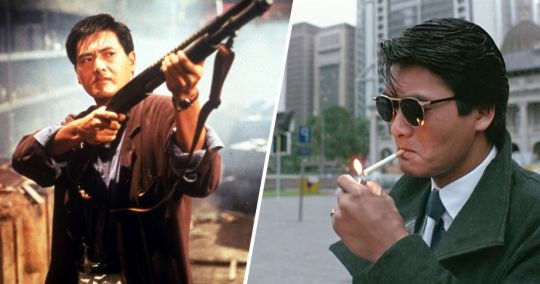
To start, I feel it is important to start with some of the history behind film in Hong Kong. According to an academic source written by Paul Fonoroff, the first forty years of film in Hong Kong are scattered or no longer remain due to the lack of archives left from after Japan’s occupation during the second World War, and the rest were destroyed (Fonoroff, 1988). With this in mind, there are many limitations in accessing information regarding film in Hong Kong. The first film studio to have started in Hong Kong was founded by Li Minwei, who would later be known for his impact on cinema within the region (Fonoroff, 1988).
It is important to note that action films in Hong Kong stand apart from those in the United States. According to a source, actors in Hong Kong action films go through extensive fight training for their films (Johnson, 2018). This is significantly different when we compare this to most action films in the United States, which often use different effects and/or stunt doubles to film the scenes.
What is fascinating about Hong Kong action films, is the predominant role of women in the movies. Andy Johnson noted in his article, “generally, women have long had a major on-screen role in the region's action cinema. Two notable eras of prominence for women in action movies include the wuxia ("martial hero") boom of the 1960s and the "girls with guns" trend in the 1990s. King Hu's 1966 film Come Drink With Me stars Cheng Pei-pei, and is a classic of the genre” (Johnson, 2018). This is much different than other locations of the film industry, which have historically limited the experiences and opportunities for woman in the field.
Between 1960 and 1980, there was a large push to produce Hong Kong action films. A lot of the focus of these movies is related to martial arts, most notably with Jackie Chan. Since this influx of production, there has been much less within the industry.
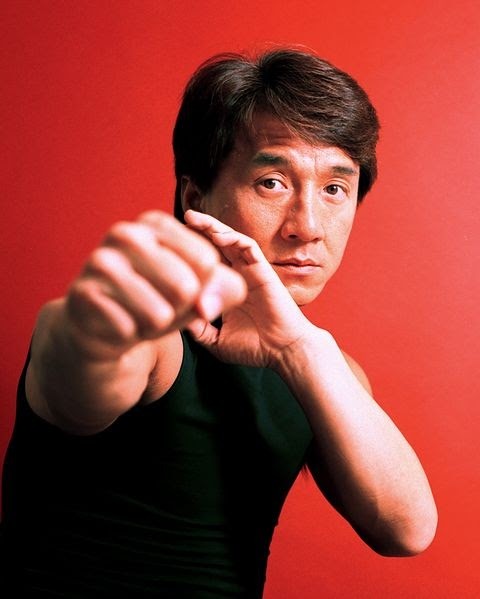
I am looking forward to exploring more of these ideas in depth as I continue to blog! Until next time... 😊
References:
Fonoroff, P. (1988). v29&30P293.pdf.
Johnson, A. (2018, December 24). Hong Kong Action movies: A brief introduction. ANDY JOHNSON. https://www.andyjohnson.xyz/home/hong-kong-action-movies-a-brief-introduction
Press Center. (2022, October 18). Images and videos. Press Center. https://press.aboutamazon.com/images-videos/
Ranking every Hong Kong film released in 2023, from worst to best. South China Morning Post. (2023, December 31). https://www.scmp.com/lifestyle/entertainment/article/3246279/every-hong-kong-film-released-2023-ranked-worst-best-year-new-directors-continue-make-history
SSL for everyone: Webflow updates. RSS. (n.d.). https://webflow.com/updates/ssl
1 note
·
View note